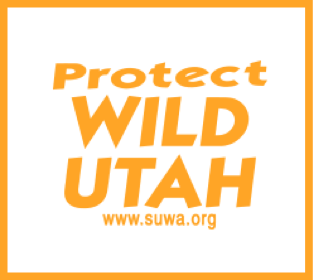|
* SOUTHERN UTAH WILDERNESS ALLIANCE * NINE MILE CANYON COALITION * THE WILDERNESS SOCIETY FOR IMMEDIATE RELEASE Contacts: Stephen
Bloch, Southern Utah Wilderness Alliance, (801) 859-1552 (cell)
Historic Preservation and Conservation Groups Settle Suit over BLM Approvals of Natural Gas Wells in Nine Mile Canyon Region BLM Agrees to Change National Policy and Restrict Use of Loophole That Led to Drilling SALT LAKE CITY, UTAH (March 31, 2010) – A coalition of historic preservation and conservation groups announced yesterday that they settled a lawsuit with the Bureau of Land Management filed in the summer of 2008 challenging the BLM’s approval of 30 natural gas wells in the Nine Mile Canyon region of Utah. Under the Bush administration, the BLM approved these wells using a loophole established in the Energy Policy Act of 2005 known as ‘statutory categorical exclusions.’ Thousands of other oil and gas wells were approved across the western United States using this loophole. The improper use of these statutory categorical exclusions often permitted development that ignored impacts to the environment, historic properties, and other important resources. As a part of this settlement, the BLM has agreed to change its national policy guidance and not use statutory categorical exclusions when there are ‘extraordinary circumstances’ present. Practically speaking (and as set out in the Department of the Interior’s manual), this means that BLM will no longer rely on this shortcut to approve oil and gas development when such activities may have adverse effects on “such natural resources and unique geographic characteristics as historic or cultural resources, park, recreation or refuge lands . . . wetlands, floodplains or ecological significant or critical areas.” Likewise, statutory categorical exclusions would not be appropriate in a place like Nine Mile Canyon where BLM has acknowledged that natural gas development may have adverse effects on “properties listed or eligible for listing on the National Register of Historic Places.” “Nine Mile Canyon is a world class resource; an outdoor museum full of rock art, prehistoric ruins, and historic reminders of Utah's military, farming, and ranching history,” said Pam Miller, President of the Nine Mile Canyon Coalition’s board of directors. “We’re pleased that the BLM has agreed to eliminate the use of this shortcut to approve new natural gas development when such activities threaten irreplaceable cultural and historic resources like those found in Nine Mile Canyon.” “This settlement tracks closely with Secretary Salazar’s announced oil and gas reforms announced in January and is an important step to bring balance and common sense back to public lands management,” said Stephen Bloch, Conservation Director and Attorney for the Southern Utah Wilderness Alliance. “Utah’s iconic public lands will be better off for the changes announced in this settlement.” “We need to give the BLM the chance to think twice before approving more drilling without environmental analysis,” said Nada Culver, Senior Counsel for The Wilderness Society. “This is an important step toward ensuring that other valuable resources, such as the spectacular rock art of Nine Mile Canyon, and other essential uses of our public lands, such as recreation, are considered and protected before drilling.” The groups participating in the legal challenge do not oppose drilling on public lands—and indeed do not challenge the vast majority of leasing and development proposed for BLM lands—but are concerned about the damage to important public values when drilling is located in proposed wilderness or areas with rich cultural resources such as Nine Mile Canyon, and/or adequate safeguards are not required to ensure that the impacts of drilling are minimized on these other important public land uses. The terms of the settlement agreement confirm as much; they require that BLM “think first, then act” in its approvals of oil and gas development on public lands. Resources: Copy of the Settlement Agreement GAO Report on Concerns with Categorical Exclusions Photographs: |
|
|

 Southern Utah Wilderness Alliance
Southern Utah Wilderness Alliance
Protecting Utah's Redrock Country
